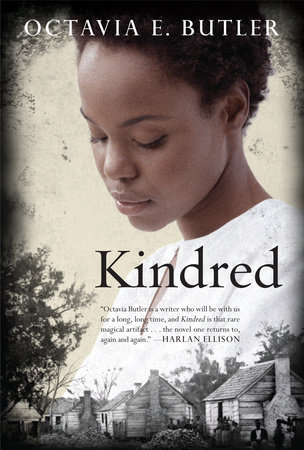When my grandmother was a child, she and her family fled Ukraine to spend the war in a factory town in the Ural Mountains, where her father, an engineer, made tanks for fighting the Nazis. Though she never sat down and told me the story in one go, bits and pieces always floated around my consciousness, from the story of my grandmother and her family hiding under a train during a Nazi bombing to the moment when her own grandmother fell under a train to her death while holding her hand. These stories seemed to point to why my grandmother was so tough and resilient, and to make me wonder what to make of my modern, significantly more cushy life in the United States.
In my sophomore novel, Something Unbelievable, Natasha, a struggling thirty-something actress and new mom, asks her own Kiev-born grandmother, Larissa, about her World War II story so she can put it on stage and jumpstart her career and outlook. Though the story Larissa tells is much more salacious and offbeat than my grandmother’s, revolving around a love triangle and a beloved bobcat, I found Natasha asking herself the same questions I asked myself when hearing my grandmother’s story: what has the older generation passed down to me, willingly or not? Will I ever fully understand my elders or my native land? How can I pass my family’s history and culture down to my American-born child?
It’s no wonder that many of my favorite books feature a complicated story that is passed down from one generation to the next. It’s often the younger person, the child or grandchild, who is left with the story, trying to make sense of it. Whether these narrators just want to make a record, to figure out their own lives, or even to use the stories to make some money, here are seven books that meditate on the burdens and blessings of the inherited family story.

City of Thieves by David Benioff
David Benioff’s City of Thieves begins with a frame of the writer-narrator, David, preparing to write down his grandfather’s story of surviving the devastating Siege of Leningrad during WWII. As the story goes on, the reader can’t help but wonder which love interest from the past is the current grandmother from the present—after the story is over, the reader finally learns who is who, though what matters more is how the narrator will make sense of his family’s story. At first, the narrator is concerned that his grandfather doesn’t remember every part of it because he wants to make sure he gets it right. But his grandfather doesn’t care. “You’re a writer,” he tells him. “Make it up.”

The Boat by Nam Le
The first story of Nam Le’s story collection, “Love and Honor and Pity and Pride and Compassion and Sacrifice,” is also about a young writer who wants to hear his father’s story of being in a massacre during the Vietnam War, but his father burns the story he writes about it on his typewriter in the garbage at the end. “Why do you want to write this story?” his father asks him. Eventually, the writer lands upon an honest answer: “If I write a true story…I’ll have a better chance of selling it,” he says. Yet the rest of the eclectic and moving collection is a testament to the fact that the author (and the narrator of the first story, one can’t help but think) is more than just an “ethnic lit” writer trying to sell out his family, but one who is capable of telling the stories of a girl who narrowly escapes the Hiroshima bombing, a Colombian hitman, and Vietnamese refugees alike.

Ours: a Russian Family Album by Sergei Dovlatov, translated by Anne Frydman
Sergei Dovlatov’s Ours: a Russian Family Album is a humorous chapter-by-chapter biography of several members of the author’s family, starting with his grandfather, moving on to his wife, and ending with the birth of his son, Kolya. The album, read together, tells one family story of which Dovlatov is only a part, even if he sees himself in every character. It begins with his Grandpa Isaak, a Jewish peasant from the Far East whom he had never met. He writes, “ ‘I often think of my grandfather, though I never knew him.’ For instance, if one of my friends says in surprise, ‘How come you drink rum out of a teacup?’ I immediately think of Grandpa.” Later he says, “When my children leaf through the family album, it won’t be hard to mistake us for one another.” Though the book digressed and entertained and affected our narrator along the way, at the end of the book, with the chapter about his son, Dovlatov writes, “I hope it is clear to everyone that this has been his story.”

Kindred by Octavia E. Butler
In Octavia E. Butler’s time-traveling tour-de-force Kindred, Dana, a Black woman in 1970s California travels back in time to the Southern plantation where Rufus, one of her white ancestors, is a small child, and rescues him from drowning, and saves his life over and over again as she continues to return to the plantation against her will, escaping danger every time. She realizes that his problematic family story is her own, and that the two are bound together for life, even if she is fundamentally opposed to his way of living. At the end of the book, Dana seeks closure with her family story and travels to find records of her family with her husband. “Why did I even want to come here,” she asks. “You’d think I would have had enough of the past.”

Angle of Repose by Wallace Stegner
Wallace Stegner’s Angle of Repose is the story of the ailing and embittered retired historian, Lyman Ward. Ward is delving into the art and correspondence of his grandmother, Susan Burling, a renowned artist and author, and his less-refined mining engineer grandfather, Oliver Ward, to write his own dramatized version of her life. As the story unfolds, the reader learns that it is much more than a biography, and more of a search of where her marriage went tragically wrong as a way for the narrator to understand the disillusion of his own marriage, and to see if there’s any hope on the horizon. “She had rooms in her mind that she would not look in to,” he writes of his grandmother, and yet, through the writing, he tries to turn on the lights in these dark, unknowable rooms. He writes about his grandparents, “What really interests me is how two such unlike particles clung together, and under what strains, rolling downhill into their future until they reached the angle of repose where I knew them. That’s where the meaning will be if I find any.”

The Nesting Dolls by Alina Adams
The Nesting Dolls chronicles the lives of several generations of courageous women in one Russian Jewish family. The novel begins with Zoe, an American-born child of Soviet heritage preparing for her great-grandparents’ anniversary party. It transitions to the story of her great-grandmother Alyssa’s own mother, who was in a Soviet gulag in the 1930s, where she found herself in a surprising romantic entanglement after her husband was allowed to leave. Present-day Zoe is trying to find herself in her career and is torn in her affections between the more suitable man and the one her heart really wants; as Zoe makes her decision, it’s obvious that her great-great grandmother’s story of heartbreak and survival resonated with her.

Late Migrations by Margaret Renkl
Margaret Renkl’s Late Migrations covers the author’s trajectory from child to caregiver for her parents, while also exploring the natural world and her grandparents’ lives in Lower Alabama. The memoir begins with the story of her mother’s birth as narrated by her grandmother, in 1931, and the weight of history hangs heavy throughout the wondrous book. Several chapters begin with the title, “In Which My Grandmother Tells the Story of My Grandfathers’ Death/the Day She Was Shot/Her Mother’s Death” and describes the lives and deaths of the author’s relatives in heartwarming and heartbreaking detail.
While our lives are transient, the author takes comfort in both the predictable changes and permanence of the natural world. She writes, “…but still the snow moon rises between the black branches in our postage-stamp yards, as lovely as it has ever been, untouched by all our rancor, unmoved by our despair.” This is sound advice for anyone out there who is soul-searching through the past or worried about the future.
The post 7 Intergenerational Novels About Family Lore appeared first on Electric Literature.









